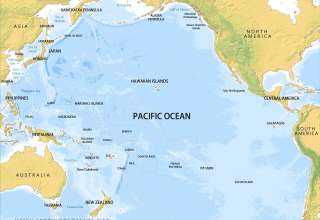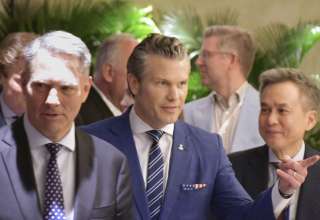by Humphrey McQueen
A presentation given to Solidarity Breakfast on Radio 3CR, 30 September 2017
 Samuel Walker Griffith is known today from a NSW country town, an inner Canberra suburb and a Queensland university. The more politically aware might recall that he drafted the Commonwealth Constitution in 1891 and became the first Chief Justice in 1903, having served as Premier of Queensland and its Chief Justice from 1893. His progressive 1900 Criminal Code was adopted around the Empire in the Pacific, Africa, on Cyprus and for Palestine.[1]
Samuel Walker Griffith is known today from a NSW country town, an inner Canberra suburb and a Queensland university. The more politically aware might recall that he drafted the Commonwealth Constitution in 1891 and became the first Chief Justice in 1903, having served as Premier of Queensland and its Chief Justice from 1893. His progressive 1900 Criminal Code was adopted around the Empire in the Pacific, Africa, on Cyprus and for Palestine.[1]
Since 1992, Griffith has been the patron saint of the constitutional monarchists in a Society named after him. Its membership overlaps with that of the union-bashing H.R. Nicholls Society. Neither of those bodies cares to be reminded of what Griffith got up to in 1888-90.
In 1888, Griffith introduced a bill into the Queensland Legislature to redistribute wealth to the workers as its only true producers. Infringement of that ‘law of natural right’ threatened social chaos. He took the matter up again in July 1890 by introducing two bills to enact what he called ‘the elementary property law of Queensland’:
It is the duty of the state to make provision by positive law for securing the proper distribution of the products of labour in accordance with the principles hereby declared.
These efforts connected to liberalism in the colonies and in Britain where John Stuart Mill had called himself a socialist and campaigned for the progressive nationalisation of land through taxation. (That proposal might come as a bit of shock to Julie Bishop who denounced the much less radical Resources Rent Tax as ‘Marxism’.)
For the Christmas 1888 issue of William Lane’s Boomerang, Griffith did a one-page article on ‘Wealth and Want’, which he expanded into a ten-page essay ‘The Distribution of Wealth’ for the July 1889 issue of The Centennial Magazine.[2]
It is intriguing to track down how much Griffith took from his reading of the recently translated first volume of Marx’s Capital.[3] He divided his essay into three parts. The first upheld the view that labour is the sole source of new wealth; the second explained why capital and not labour got that extra; and the third part made suggestions for redistributing the new wealth to its direct producers.
On the source of wealth Griffith was farthest from the other local bourgeois voicing their concern at the rising inequality of its distribution. Like them, he agreed with the Archbishop of York who recognised that there is something radically wrong in the present system, under which capital is constantly accumulating in greater masses than ever in single hands .
In Griffith’s ‘desire to find a remedy for the evil’, he was not one of those who ‘assumed that no action was called for because there is ‘no imminent danger of a sanguinary upheaval …’.
He suspected that those wont to accuse reformers like himself of fostering ‘revolution’, Communism, or what they call “Socialism”, in disguise’ harboured a guilty conscience about how they had ‘acquired their present possessions’. Griffith, therefore, was astute enough to know that any attempt to redistribute ‘existing accumulations of wealth in private hands’ was likely to provoke ‘a sanguinary upheaval’ from the other side of the barricades. Unlike those who wanted to nationalise or merely redistribute landed property, Griffith confined his plans to ‘the distribution of wealth to be hereafter produced.’
Despite distancing himself from extremists, Griffith asks the hard question:
how it comes about that the larger share of the new wealth which is produced gets into the hands of a few persons, who, for the most part have not contributed, at any rate by any individual effort, to its production.
The reactions from other colonial reformers to the merest hint that capital contributes next-to-nothing to the production of new wealth is set them frothing at the mouth. Over and again, Griffith reverts to Marx’s view that ‘new or additional wealth’ can be produced only by ‘the application of labor to already existing wealth,’ Griffith affirms that ‘[t]he contribution of the ‘possessor, qua possessor, is at most, passive.’ Here, he has rephrased Marx’s account of the capitalist qua capitalist as the personification of capital.[4] Both accept that if capitalists also work in their businesses they were entitled to wages like any of their employees. Griffith continues:
But, in many instances, the only contribution he [the capitalist] has made with this brain has been the exercise of his volition to allow his property to be worked upon for wages.
At this stage, apologists for the capitalists’ to claim a share of the additional wealth contend that profit is the reward for ‘abstinence’, that is, for the owners’ restraint in not lavishing on themselves all the wealth they acquired from the labor of others. Griffith’s essay is notable for paying no attention to that line of defence.
He finds ‘that the evil, or error’ of the present system has to be sought by tracking down to whom ‘this new wealth’ goes, He see that wages of labor are practically fixed at the necessary cost the maintenance of the laborer during his labour.
This account is not quite Marx’s but comes pretty close. The inclusion of ‘practically’ at least marginalises Lassalles’ iron law of wages. However, the account of wage-levels needs to be cross-generational. not just enough for a production period. Griffith continues:
… the system of competition does, in fact, fix the rate of wages at the cost of subsistence of the laborer …
The result is that they get none of the new wealth – unless, Griffith adds, they have combined to win some. Wages are, as Marx also has it, a cost of producing new wealth; they form no part of that new wealth; they ‘are paid, not out of capital, but out of the produce of the labor itself.’ Griffith again puts the hard question: ‘… why should they not have all the profits?’
In the second section of the essay, Griffith explores ‘The Causes’ of why we do not. For him, it is a self-evident truth that the possession of property enables a man to live without working himself by means of the work of other people…
The social, political and economic inequalities of slavery and serfdom have nurtured mentalities in which injustice is considered as the natural and proper one, so that it seemed part of the order of the universe that the whole or a part of the produce of one man’s labor should be at the disposal of another.
Griffith now slips away from this social evolution of notions of inequality as part of the natural order and into a theory of natural rights, based on the ‘self-evident’ truth that all men are created equal, and endowed by their Creator with the inalienable rights of life, liberty and the pursuit of happiness.
For Marx, no social relationship is eternal, natural or universal since all are the outcome of ever changing sensuous human practices, By contrast, Griffith argues:
The only underlying rule of natural right appears to be the fundamental truth already stated, that the products of man’s labor are his own.
Griffith next moves into a discussion of commodification of human labour, our capacities can be treated as things:
But I conceive that the true view is that a man’s labor is not something outside himself, but is part of himself, and cannot properly be the subject of sale.
Here, he broaches notions of alienation and estrangement, without exploring them. Instead, he hedges:
At all events such a transaction can only be supported if the seller the purchaser are dealing on perfectly equal terms.
Griffith can accept the morality of a laborer’s agreeing to an employer’s taking some or all of the additional wealth. The rightness of such arrangements comes with a proviso: that the bargain is entered into freely between two persons equally free to contract.
Because he knows that it notorious that there is not ordinarily, any such equal freedom of contract between the employer and the employed.
He concludes that:
a measure of freedom of contract has been obtained by combination on the part of the labourers. This very combination is an effort of strength put forth against the other part to the bargain, who, but for the combination, (and sometimes in spite of it), would be the stronger.
This imbalance of power keeps wages close to the level of subsistence, with which Marx would agree. The impoverishment is because of the relative strengths of the contending classes, for, as Griffith puts it:
… the possessor of wealth, the employer, is the stronger; the contract is not free, and the weaker party has, in order to procure the means of livelihood, to accept the terms which the stronger party chooses to give.
In short, the rule of the strong, which in one form is slavery, or the practical ownership of men by men, has by no means disappeared from our social system. We have abolished its most objectionable outward and apparent manifestation, but it still exists as part of the practical rule of life.
This relationship between capital and ‘free labour’ Marx calls ‘wage-slavery’.
In the concluding third of the essay, Griffith looks for ‘The Remedy’ to the unjust distribution of the new wealth produced solely labour:
The first step, then, in any practical reform is to establish a real and living belief in, and acceptance of , the truth that the products of a man’s labor, after defraying the cost of his maintenance during his labor, belong to himself.
He soon moves from legal theorist to practical politician, when he recognises:
But a more important step is to reduce the rule into practice.
That is why he introduces that pair of Bills in 1889 and 1890.
Within two years of Griffith’s reading Capital, he reverted to serving his class when he sent troops against the shearers’ camp at Clermont and Barcaldine. Griffith demonstrated that it one thing to glimpse the truth about class exploitation and an entirely different thing to live by it. Small wonder that as a schoolboy he had acquired the sobriquet of ‘Oily Sam’ for his willingness to argue both sides of any question.[5]
Did Griffith backflip, or was the ‘re-distribution of wealth’ phase just a device by Oily Sam to regain electoral support?
Either way, he was right to come so close to Marx’s understanding of why there can never be ‘a fair day’s pay’. The reason is that even when capital pays for the full value of the amount of labour-power it takes the value added in excess of that equal exchange. Were that not the case, there could never have been capitalism.
[1] R.S. O’Regan, ‘Sir Samuel Griffith’s Criminal Code’, Royal Historical Society of Queensland Journal, XIV (8), August 1991, pp. 305-17. [2] Sir S.W. Griffith, ‘The Distribution of Wealth’, The Centennial Magazine, I (12), July 1898, pp. 833-42. [3] Roger B. Joyce, Samuel Walker Griffith, University of Queensland Press, St Lucia, 1984, pp. 150-1. [4] Karl Marx, Capital, I, Penguin, London, 1976, pp. 92, 178, 254, 298, 342, 739, 989-90 and 1054. [5] Joyce, 1984, p. 8.



